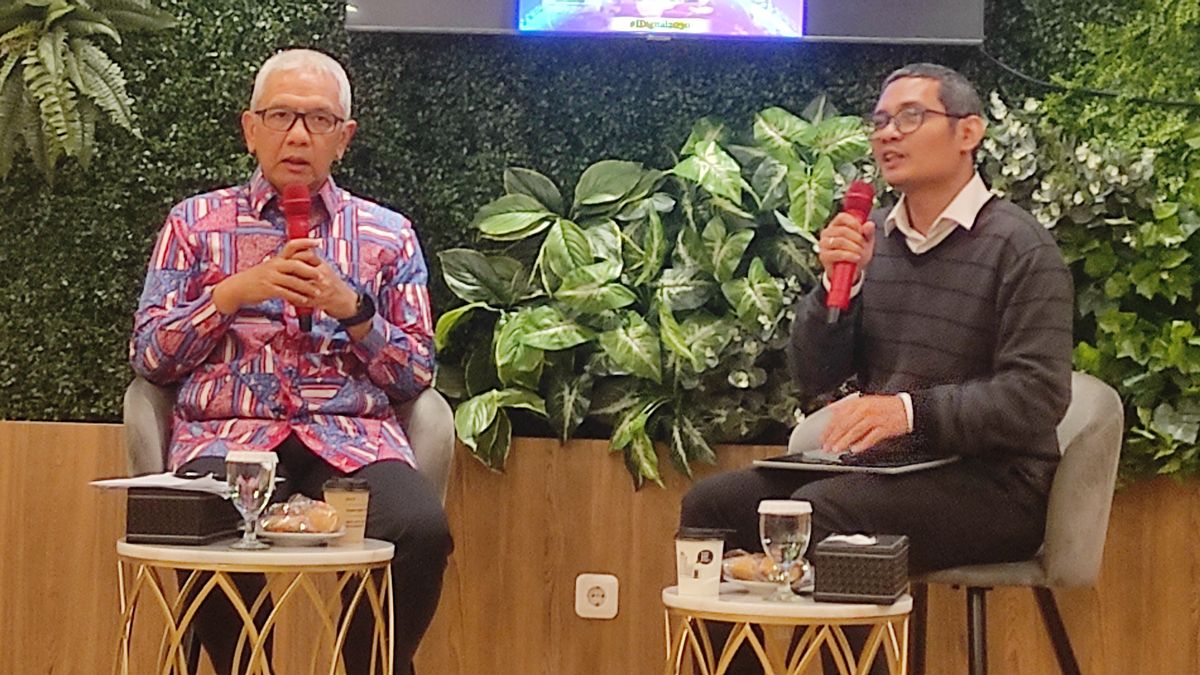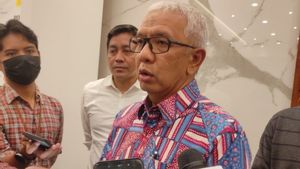JAKARTA - The government continues to accelerate the development of the digital economy, as a strategic pillar to realize the 2045 Indonesian Vision.
This commitment reflects a strong focus on the shift in the economy towards sustainable digital innovation.
Deputy for Coordination of the Digital Economy, Manpower, and MSMEs of the Coordinating Ministry for the Economy Rudy Salahuddin said that his party was preparing the White Book of the National Strategy for the Development of Indonesia's Digital Economy 2030.
The nuku is to welcome the potential of the digital economy which is projected to grow to reach 109 billion US dollars by 2025.
The plan is for the White Book of Digital Economy to be launched on Wednesday, December 6, 2023.
"So we all know that our economic value in 2023 is 82 billion US dollars, and this is estimated to reach 109 billion US dollars in 2025. This figure is 40 percent of the total value of the digital economy in ASEAN," said Rudy in Media Briefing: Launch of the White Book of National Strategy for Digital Economy Development, Monday, December 4.
Rudy said that the digital economy is multi-issues and multi-stakeholders, therefore the government will orchestrate efforts to develop the digital economy so that it is harmonious and implementable through the National Strategy for Digital Economy Development 2030.
According to Rudy, this document can be a strategic guide because it describes Indonesia's Digital Economy Development Vision 2030 which is equipped with digital economy development directions, targets, and initiatives.
"This white book is expected to maintain and pursue market share in ASEAN. Because, several countries are currently pursuing the internet economic market. As is known, ASEAN is one of the areas that has the advantage of the digital economy," he explained.
The digital economy development intervention will later be carried out through program initiatives that are inclusive by targeting economic activity originating from the digital sector (corescope) or economic activity that arises due to the digital sector (narrow score) or economic activity supported by the existence of the digital sector (broad range).
Rudy added that the six main pillars of digital economic development are infrastructure, sdm, business climate and cyber security, research, innovation, and business development, funding and investment, as well as policies and regulations.
To pursue this potential, Rudy said that Indonesia needs digital talent, regulation, and cyber security, as well as adequate infrastructure with this white paper, which is expected to help stakeholders to run the digital economy to achieve the vision of Indonesia Gold 2045.
This is a kind of guideline for stakeholders to run the digital economy. We don't mess up the program, for example, at this time there are things that are not the same, we have to be inlined in the white book," he explained.
SEE ALSO:
Rudy hopes that this white book can be forwarded and continued by the President who will be elected in 2024.
According to him, continuous regulations are included in the national strategy of the digital economy.
The new leadership mission vision can be adjusted, adjustments are only on target, minor, can be adjusted from the vision of this white book. Including the possibility of a new digital economy institution. Go ahead," he said.
Rudy said that efforts to develop the digital economy have been initiated since 2019 by involving collaboration between K/L, Related Authorities, Academics, Industry Actors, and consultants through various FGDs, limited discussions, to High Level Meetings.
The English, Chinese, Japanese, Arabic, and French versions are automatically generated by the AI. So there may still be inaccuracies in translating, please always see Indonesian as our main language. (system supported by DigitalSiber.id)














